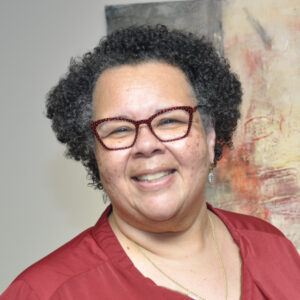
Writing for Your Life of Teaching
What happens at the Wabash Center is not meant to stay at Wabash. This is not a statement about confidentiality nor about alleged indiscretions. By design, the unambiguous gift of the Wabash Center to faculty colleagues in religion and theology remains conversations to support the life of teaching. Our workshops, colloquies, digital salons, and consultations create conversations to open new, and reinvigorate old, dimensions of teaching. It is our hope that the gleanings, learnings, new perspectives, reaffirmed approaches, needed information, refreshing analyses, renewed skills, modeled competencies, newly introduced notions, and the sheer fun of gathering together in hospitality and camaraderie will be implemented into classrooms as well as reinvested into faculty ecologies. What happens at Wabash is meant to be shared, taught, imparted, imitated and made public.
As such, we hope our most recent workshop will be mined for distribution and circulation. The workshop was “Breaking the Academic Mold: Liberating the Powerful, Personal Voice Inside You.” It is a new collaboration with the Collegeville Institute. The online cohort gathered to learn the practices of creative non-fiction writing. We were led by Sophfronia Scott, Director of the Masters of Fine Arts Program, Alma College and Michael N. McGregor, Collegeville Institute faculty. A complete description of the workshop is on our website. The premise of the workshop is that learning to write in creative genres will improve teaching.
The depth and critical importance of our conversation was revealed in the kinds of questions we raised and explored. Here are examples of our wonderings:
- What if developing your writing voice simultaneously assisted with developing the teaching voice?
- What if learning to operate in your power as a writer impacted your teaching capacity?
- What if by learning to claim the agency and power in creative writing you ignite your teaching?
- What if the skills, competencies, capacities of creative non-fiction writing had direct bearing upon your pedagogical decision making and judgement?
- What if getting a better handle on the human condition meant writing about it, then teaching about it - or vice versa?
- What if deeper understanding of religious experience was inherit in learning to write beyond the academic genre of writing?
- What if the hermeneutical challenge of our teaching can be best met through better story telling?
- What if developing and improving writing skills is a way to better communication and organization skills often lacked in the classroom?
- What if learning to write so that readers are emotionally moved would improve the ways we design courses or teach a session?
- What if freeing your imagination for writing contributed to freeing your imagination in teaching?
- What if the narrow and humdrum restrictions of academic writing was maintained as much by scholar’s self-policing as by the guild’s rigid expectations?
- What if writing was a tool to narrate yourself into new life as a teacher?
- What if the power and ability of voice could be unlocked by learning creative writing?
- What if moving people into new understandings and new grapplings with old ideas, meant harnessing the power and ability to write creatively?
- What if strengthening the voice for personal expression resulted in more authentic scholarship?
- What if through creative non-fiction writing our ideas were made more accessible to a wider audience who are asking similar questions as our students and colleagues about religion and theology?
During the 6-day workshop we were afforded the luxury of large chunks of time to write into these questions, or to write about anything else we desired. It was a joy.
These provocative, permission giving, and counter-cultural questions permeated our workshop and shaped our conversation in generative ways. Questions bubbled and were engaged in daily plenary discussions. The two workshop leaders made themselves available for one-on-one sessions where these questions were answered in private and focused on the personal. These questions surfaced in the sessions where we workshopped one another’s writings. Three times during the workshop each participant read aloud his or her original writing. One of the sessions was dedicated to the entire group providing constructive feedback to each writer while the writer listened to the critique (There are no tears during workshopping sessions!).
Hearing from generous and care-filled colleagues about new writing was an act of trust and vulnerability. Providing feedback to colleagues during their writing process was a genuine act of confidence and collaboration. The mutuality, solidarity, and shared wisdom gave me a renewed sense of creativity and hope.
I am able to provide a first-hand account from inside the workshop because I was a participant. It was my privilege to learn and grow alongside my peers. As Wabash Center Director, I want to continue to actively learn about teaching. Even at this advanced stage in my career, I want to learn more about teaching and the teaching life. I want to learn to write better, more accessibly, and with a more authentic voice. I have no doubt that by improving my teaching and my writing I will clarify my vision for the Center and lead us to a more generative future.
After the workshop, I returned to my desk with this quote resonating in my spirit. It captures my experience in the workshop as well as provides me with clarity as we move into our future. Ralph Marston wrote: “Go often to where you have the indisputable knowing that life is good. Do, again and again, those things that affirm your highest hopes and best instincts … Touch, taste, feel, see, hear what compels you to care. Let life be good in ways that drive you to make it even better.”
Thank you Sophfronia Scott and Mike McGregor.
Thank you, Collegeville Institute. I hope our collaboration grows.
A special thanks to my fellow writers and workshop participants for this adventure!
Leave a Reply